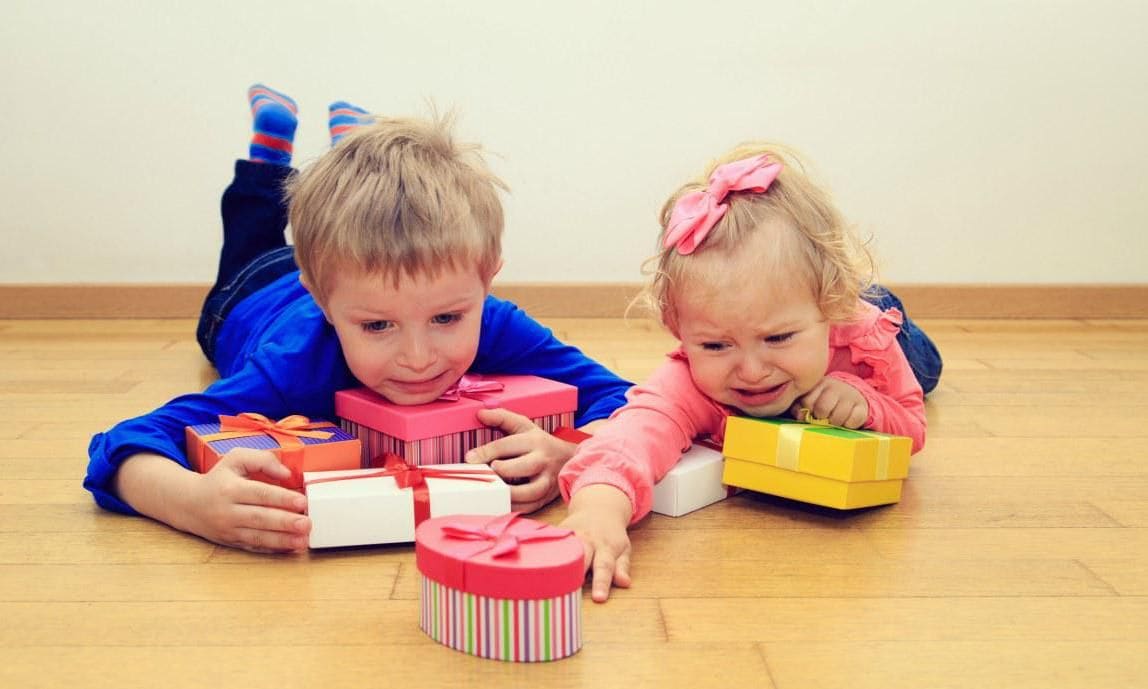As a family grows, parents try to spread their love and attention equally among their kids, but from the kids’ perspective, the arrival of a new baby tends to be a difficult change to accept and that’s when they can start to feel jealous.
If you’re a mother to two or more kids, you’ve surely experienced situations where one of them starts to demonstrate jealous behavior: the eldest wants the baby’s toys or has a toilet mishap, even though they’re potty trained. They say things like: “You don’t love me anymore,” or: “Dad likes playing with my brother more,” leading to constant struggles. And perhaps you get to a point where you don’t know what to do, you feel frustrated and wonder how to deal with this situation that is so common during motherhood?
We’ve got good news for you: it’s definitely possible to overcome problems caused by jealousy. The experts agree that the key to it all is patience, love, and respect. Want to know more? Here are a few tips to handle it.
Acknowledge the emotion
It's good to know that jealousy is normal. So don’t feel guilty if one of your kids starts to experience these feelings, which originate from the fear of losing or receiving less of your love and attention.
The first step in addressing jealousy in a healthy way is accepting that one - or more - of your children feels this emotion, which is part of human nature.
They cannot choose when to stop feeling jealous. For kids, it’s difficult to understand and express in words what they are feeling, and that’s where the role of the parents comes in. Breathing, reflecting, and using common sense and respect are key to addressing this emotion among siblings.
Pay attention to the signs
All kids feel jealous at some point and they show it through changes in behavior and actions that should be detected early in order to resolve conflicts with understanding and love.
What are the signs? Crying, sulking, meltdowns, or aggressiveness. They may also start saying negative things about their siblings, mom, and dad, try putting themselves down, or boasting about their own accomplishments. Their anguish and discomfort can also manifest itself through physical symptoms, such as headaches, fever, dizziness, discomfort, and insomnia.
Family support
When jealousy occurs, family support and unity is fundamental. Parents’ intervention is necessary to make the jealous child feel better.
Maintaining a healthy family living situation is important. To do this, you can take steps like improving the bond between father and son with fun activities or walks, while mom spends time with the new baby.
The idea is to spend one-on-one time with each child and as mom, you should also try to do this every day, even if it’s only 10 minutes dedicated to playing, reading, or chatting, depending on the age of the older children.
In this sense, an option is to give each little one their own space in the house. The idea is to make them feel like they have their own little individual spot within the home.
Encourage respect and treating each other kindly
A jealous child can act out with aggressive behavior towards one of their siblings or parents, and if this happens it’s important to establish limits with respect.
It is a mistake to stop violent behavior by shouting, punishing, or spanking, because that will only cause insecurity, low self-esteem, and sadness. The ideal solution is to stop the conflict, listen to the causes, try to understand, and guide them in a positive way. But under no circumstances should it be allowed to become reoccurring. You should also avoid comparing your children and pointing out their flaws to other people.
Satisfying each child’s needs, based on their age, is the key to making sure they can connect with their emotions.
,type=downsize)








